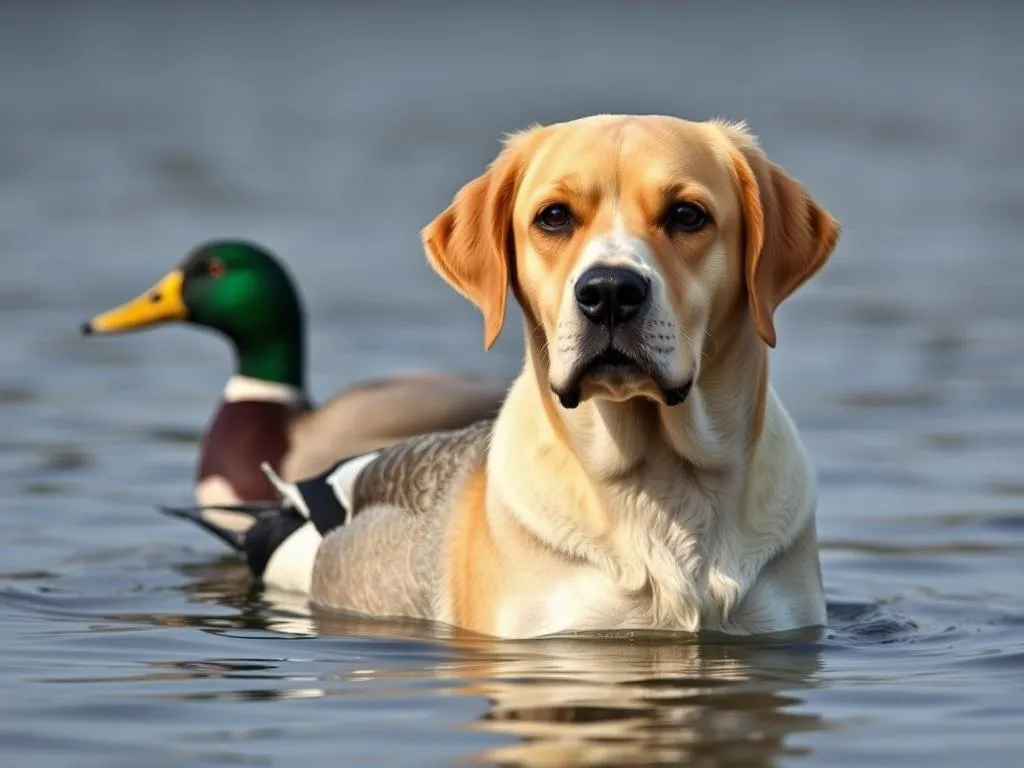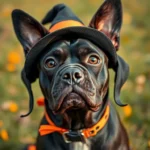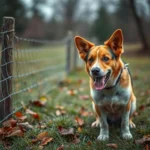
When it comes to duck hunting, having a reliable dog by your side can make all the difference. A well-trained hunting dog not only assists in locating and retrieving ducks but also enhances the overall hunting experience. As you embark on your journey to find the perfect hunting companion, it’s essential to consider various criteria that define the top duck hunting dog breeds. This article will delve into the characteristics that make these breeds exceptional hunters, highlighting their unique traits and attributes.
The Role of a Duck Hunting Dog
Hunting Assistance
A duck hunting dog plays a vital role in the success of any hunt. These dogs are specifically bred for their exceptional abilities to locate and retrieve waterfowl. Their keen sense of smell and instinctive retrieval skills allow them to track down ducks even in challenging conditions, such as dense marshes or cold waters. Trained dogs contribute significantly to the efficiency of a hunting expedition, ensuring that hunters can focus on their targets without worrying about lost game.
Companionship and Bonding
Beyond their hunting prowess, dogs offer companionship and emotional support to hunters. The bond formed between a hunter and their dog can be incredibly strong, as they work together in the field. This partnership often leads to memorable experiences and shared successes, enriching the hunting experience. The joy of sharing a successful hunt with your dog is unmatched and creates lasting memories.
Safety and Protection
In addition to their hunting skills, dogs can also enhance safety during outings. A well-trained duck hunting dog can alert hunters to potential dangers, including wildlife threats or adverse weather conditions. Their alertness and protective instincts help ensure that the hunting environment remains safe for the hunter.
Criteria for Selecting a Duck Hunting Dog
Temperament
When selecting a duck hunting dog, temperament is a crucial factor. An even-tempered dog that exhibits loyalty, eagerness, and adaptability is ideal for hunting. These traits ensure that the dog is not only a capable hunter but also a pleasant companion in the field. A calm demeanor allows the dog to remain focused amid the excitement of a hunt.
Physical Abilities
Physical abilities are essential in determining the best duck hunting dog breeds. Key traits to consider include stamina, swimming capability, and agility. A dog’s size and coat type are also significant, as they affect performance in various hunting environments. For instance, a thick coat is advantageous in colder waters, while agility can be crucial for maneuvering through dense brush.
Trainability
Trainability is another vital aspect to consider when selecting a hunting dog. Certain breeds are naturally more trainable than others, making them easier to teach commands and specialized hunting skills. A good hunting dog should respond well to various training methods, including positive reinforcement and consistent practice.
Health and Longevity
Health and longevity are essential factors in choosing a duck hunting dog. Common health issues can affect hunting breeds, so it’s important to research potential health concerns within specific breeds. A longer lifespan translates to more years of companionship and hunting adventures, making it an important consideration.
Top Duck Hunting Dog Breeds
Labrador Retriever
The Labrador Retriever is arguably the most popular choice among duck hunting dog breeds. Known for their intelligence and strong retrieving instincts, Labs are versatile and adaptable. They excel in various terrains, from marshlands to open waters, making them a favorite among hunters. Their friendly disposition and eagerness to please make them highly trainable and excellent companions both in and out of the field.
Golden Retriever
Another top contender is the Golden Retriever. This breed is renowned for its friendly nature and exceptional trainability. Goldens are not only great hunters but also wonderful family pets. Their soft mouths allow them to retrieve ducks without damaging them, and their strong swimming abilities make them well-suited for waterfowl hunting. Their gentle temperament makes them easy to work with, enhancing the hunting experience.
Chesapeake Bay Retriever
The Chesapeake Bay Retriever is specially designed for waterfowl hunting. With a unique double coat that provides insulation against cold water, these dogs are incredibly durable in harsh conditions. They possess remarkable endurance and a strong work ethic, making them ideal partners for long days in the field. Their natural retrieving instincts and tenacity make them a favorite among serious duck hunters.
American Water Spaniel
The American Water Spaniel is a lesser-known breed that packs a punch when it comes to hunting. Their versatility allows them to excel in both upland and waterfowl hunting. With a smaller stature, they are agile and can navigate through thick brush efficiently. Their friendly and eager-to-please nature makes them easy to train, which is a significant advantage in the field.
Flat-Coated Retriever
The Flat-Coated Retriever is a unique breed that stands out among hunting dogs for its joyful demeanor and enthusiasm. They possess a natural instinct for retrieving and are known for their energetic and playful personalities. Flat-Coated Retrievers are also highly trainable, making them excellent companions in the hunting environment. Their glossy black or liver-colored coats add to their appeal, and their friendly nature makes them great family pets.
Boykin Spaniel
The Boykin Spaniel is a rising star in the world of duck hunting. This smaller breed is known for its versatility and has gained popularity among hunters looking for a compact yet capable hunting partner. Boykin Spaniels are excellent swimmers and are particularly adept at navigating through swampy areas. Their friendly disposition and eagerness to work make them excellent companions in the field.
German Shorthaired Pointer
The German Shorthaired Pointer is a versatile breed that excels in various hunting scenarios, including waterfowl. Known for their impressive physical abilities, these pointers are agile, fast, and possess a keen sense of smell. Their energetic nature requires regular exercise, which is beneficial for both the dog and the hunter. Their trainability and strong instincts make them a formidable choice for any hunting enthusiast.
Training Your Duck Hunting Dog
Basic Obedience Training
A solid foundation in basic obedience is essential for any duck hunting dog. Teaching commands such as sit, stay, come, and heel will establish a strong communication channel between the hunter and their dog. Recommended training techniques include positive reinforcement, where rewards are given for desired behaviors, ensuring that the dog stays motivated and eager to learn.
Specialized Duck Hunting Training
Once basic obedience is established, specialized training for retrieving and scent work should be introduced. This can include teaching the dog to retrieve specific types of ducks and work with tools such as whistles and hand signals. Consistent practice and gradual exposure to hunting situations will help the dog become proficient in its role in the field.
Socialization
Socialization is crucial for a successful duck hunting dog. Exposing the dog to different environments, sounds, and situations will help it become comfortable and confident in various hunting scenarios. This exposure can include trips to the local park, introducing the dog to other animals, and practicing in diverse terrains.
Caring for Your Duck Hunting Dog
Nutrition
Proper nutrition is vital for maintaining the health and energy levels of active hunting dogs. Duck hunting dogs require high-energy diets rich in protein to support their physical demands. Look for dog food specifically formulated for active breeds, ensuring they receive the necessary nutrients to fuel their adventures.
Exercise
Regular exercise is essential for keeping hunting dogs fit and agile. Daily walks, runs, and play sessions will help maintain their stamina and overall health. Engaging in activities that mimic hunting scenarios, such as fetch or water retrieves, will also enhance their skills and keep them in top condition.
Grooming and Maintenance
Grooming needs can vary significantly based on breed. Some dogs may require regular brushing to maintain coat health, while others may need minimal grooming. Regular baths, nail trimming, and ear cleaning are essential parts of a grooming routine. Ensuring your dog is clean and well-groomed will help prevent health issues and maintain their overall well-being.
Health Checkups
Routine veterinary checkups are crucial for detecting and addressing any potential health concerns early on. Common health issues among hunting breeds can include hip dysplasia, ear infections, and skin allergies. Staying proactive about your dog’s health will ensure a long and happy life spent hunting together.
Conclusion
Selecting the right duck hunting dog is a significant decision that can enhance your hunting experience. Each breed offers unique traits and characteristics, making them suitable for different hunting styles and preferences. By understanding the roles, criteria, and top breeds available, you can make an informed choice that aligns with your hunting goals. Developing a strong bond with your hunting companion will not only improve your success in the field but also create cherished memories for years to come.
Embrace the journey of finding your perfect hunting partner, and enjoy the countless adventures that await in the great outdoors.








